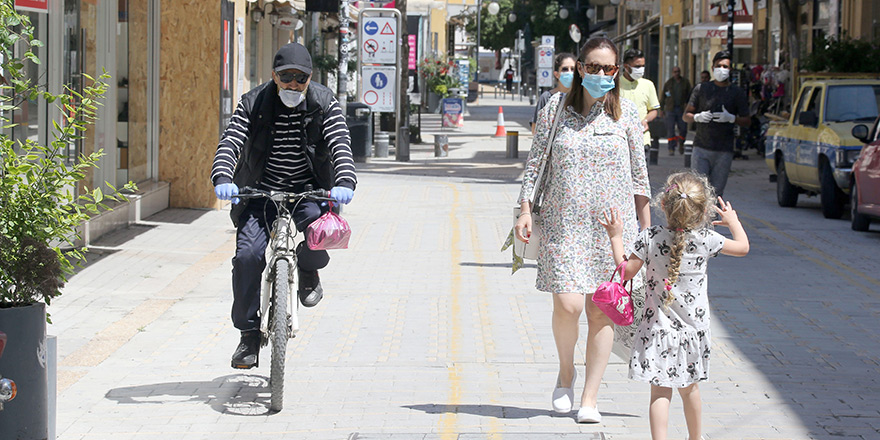Turkish Cypriot authorities are contemplating reintroducing lockdown measures to control the coronavirus pandemic in the occupied north of Cyprus, where the spread of the coronavirus seems to be out of hand, with health officials reporting more than 100 cases in just a week.
Between September 1 and 7, the 106 new COVID-19 cases were reported in the north, taking the total to 437. With just one case reported in the Republic of Cyprus on Monday, the total for the divided island is 1,947.
The Turkish Cypriot advisory committee on infectious diseases has tabled a number of radical measures, which, in essence, include reintroducing a partial lockdown, lifted after authorities in the north opened up their borders on July 1.
The committee is recommending that schools not open before October 1, while a number of other businesses such as bars, night clubs and beauty parlours be shut until the end of September.
The committee is also suggesting that parks close their gates to visitors.
Talking to public radio BRT on Tuesday morning, the Turkish Cypriot head of the Labour authorities in the north said that the ruling coalition is to meet later on Tuesday to discuss measures, noting that “as the whole world is struck by a second wave, the Turkish Cypriot authorities have found themselves before a difficult situation”.
He confirmed that the authorities were looking into introducing a number of restrictive measures to combat the spread of Covid-19.
Pressure on the ruling coalition has been mounting, as the opposition is now calling for their resignation citing that they have failed to take the situation seriously, allowing in visitors, especially from coronavirus-struck Turkey without having to place them in quarantine.
On Monday, Turkish Cypriot authorities had announced another 26 cases. Cases are usually announced by Ali Pilli, the head of the health services in the north. However, following the wave of infections, the Turkish Cypriot premier Ersin Tatar took it upon himself to announce the cases addressing the community.
Tatar said that out of Monday’s 26 cases, just four were found at the airport in the north, while another 18 were contacts of known cases who were in isolation, so “they did not have contact with the community”.
Following some 40 cases during the weekend, the authorities in the north have already tightened restrictions on visitors from high risk countries, introducing quarantine periods of seven to 14 days.
Turkish Cypriot authorities decided to impose a 7-day quarantine on people arriving in the north from countries in Category B and a 14-day quarantine from Category C.
Authorities in the north are also concerned as the virus is taking a grip in the community with more than a dozen of cases involving local infections, the vast majority recorded in the villages of Lysi (Akdogan), Vadili and Sinta (Inonu) in occupied Famagusta.
Authorities have tightened restriction in the three villages, banning all social gatherings and events for a period of two weeks, starting Monday.
As of Monday, divided Cyprus is close to reporting 2,000 COVID-19 cases, following Turkish Cypriot health authorities reporting more 106 cases in just week.
Turkish Cypriot authorities reported 40 more COVID-19 cases during the weekend with Saturday recording the highest number of coronavirus infections since the outbreak in March with 26 new cases, equalled by those reported on Monday.
The Turkish Cypriot authorities have now reported 437 coronavirus cases since the outbreak.
The leader of the Turkish Cypriot ruling coalition said that some 329 were reported since 1 July when the north opened up its ports of entry to travellers, arriving mainly from coronavirus-struck Turkey.
Passengers from Turkey have been of particular concern as the country has reported a total of 281,509 cases and 6,730 deaths, while the average number of daily cases in August was above 1400.
Turkey reported 1,703 new cases and 57 more deaths on Monday.
Before opening up ports of entry, the north had seen a 75-day lull reporting zero cases since April 17.










